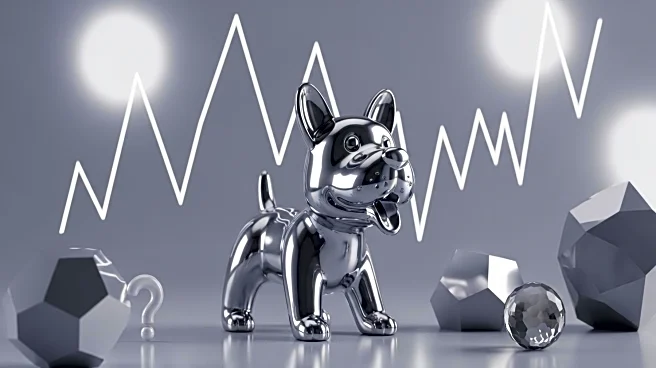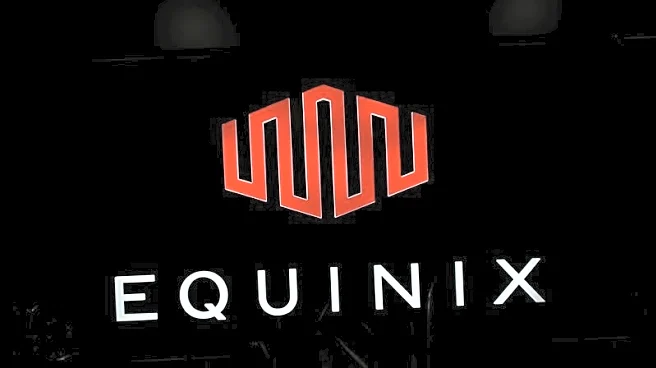What's Happening?
Dogecoin, the cryptocurrency born from an internet meme, is experiencing significant attention in the digital asset market. As of mid-September 2025, Dogecoin's price is around $0.28, with a market capitalization of approximately $42 billion. This marks a 25% price increase in the last month and a 130-179% rise over the past year. Despite these gains, Dogecoin's price remains volatile, with fluctuations driven by whale selling activities and social media trends. The cryptocurrency's value is largely influenced by community sentiment and endorsements from high-profile figures like Elon Musk.
Why It's Important?
Dogecoin's volatility underscores the speculative nature of meme coins, which derive value from social media trends and community engagement rather than traditional financial fundamentals. This phenomenon highlights the growing influence of retail investors and social media in driving market movements, challenging conventional valuation models. The success of Dogecoin has implications for the broader crypto industry, as it pressures competitors and traditional financial institutions to acknowledge and integrate unconventional assets. However, its speculative nature poses risks for investors, emphasizing the need for robust regulatory frameworks.
What's Next?
Dogecoin's future trajectory remains uncertain, with analysts predicting a wide range of outcomes. The potential approval of Dogecoin ETFs could legitimize the asset and attract broader investment, while regulatory crackdowns or shifts in social media sentiment could lead to sharp declines. For Dogecoin to sustain its value, it must evolve beyond speculation, potentially through increased utility and adoption as a payment method. The cryptocurrency's ability to maintain cultural relevance and develop tangible use cases will determine its long-term presence in the digital asset landscape.
Beyond the Headlines
Dogecoin's journey from a satirical internet joke to a major cryptocurrency raises questions about the role of meme culture in financial markets. Its success challenges traditional notions of value and investment, highlighting the democratization of access to high-growth assets. However, this also exposes investors to extreme risk, emphasizing the need for education and protection measures. The potential approval of Dogecoin ETFs could signal mainstream acceptance, but it also invites scrutiny from regulatory bodies, which could impact trading availability and investor protection.











